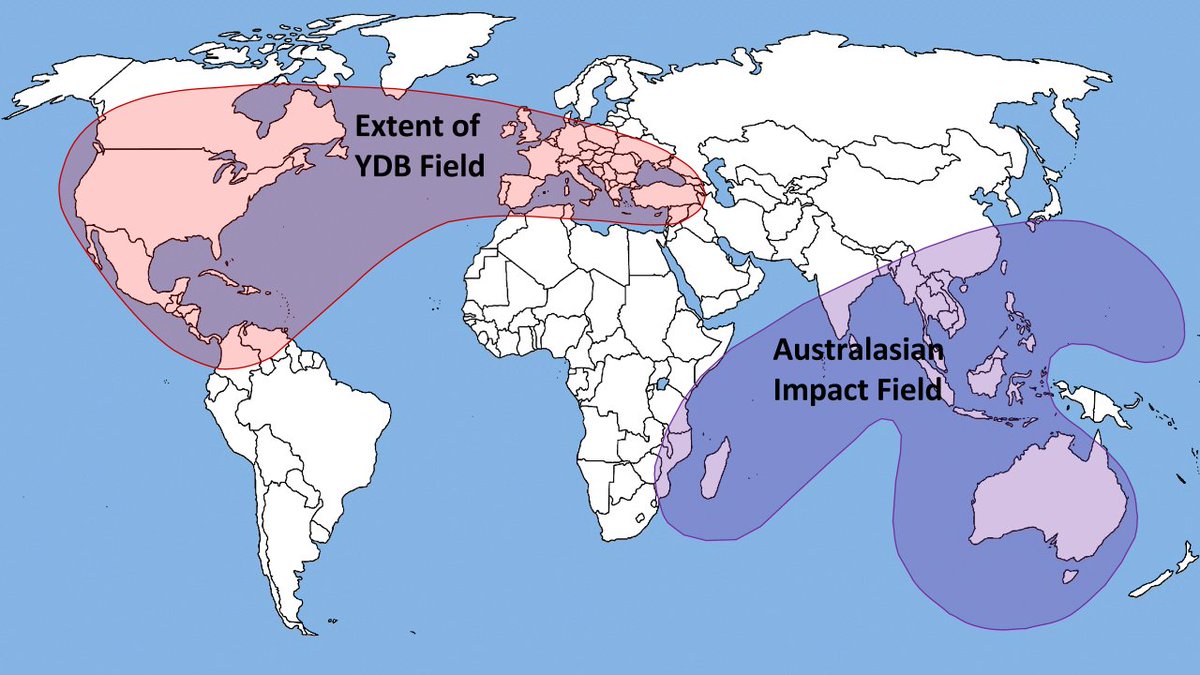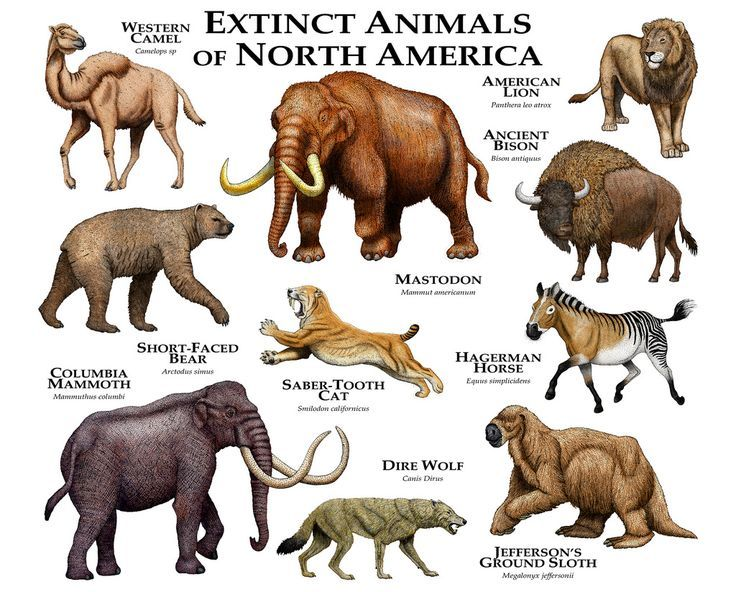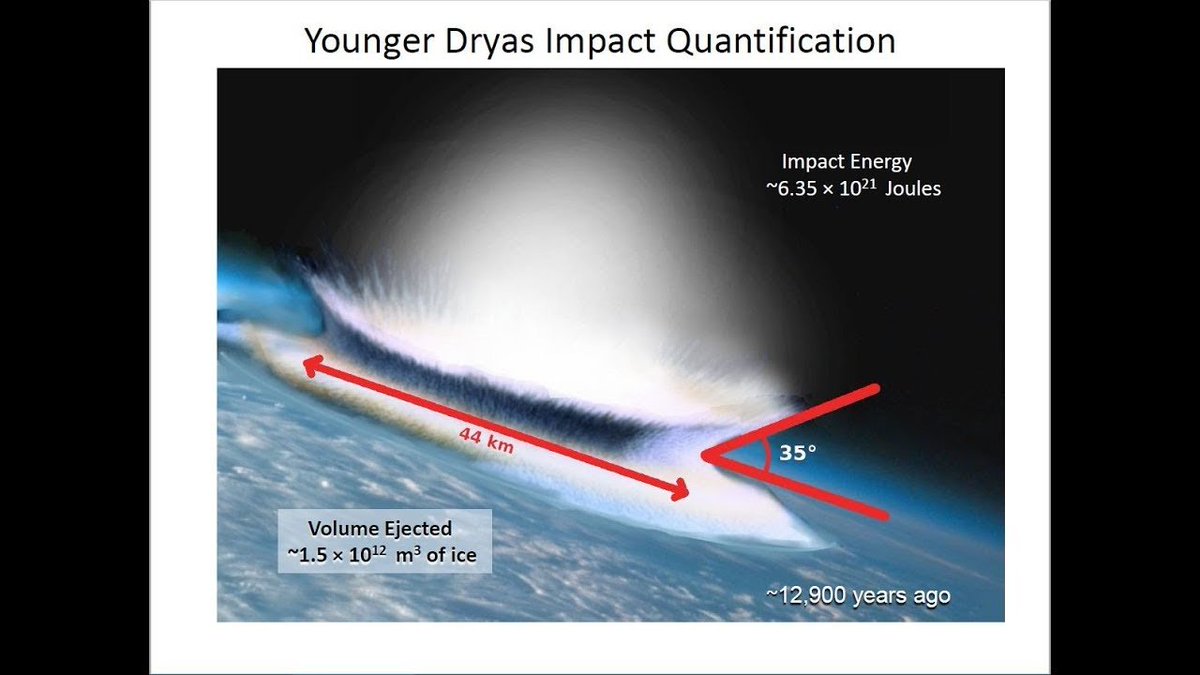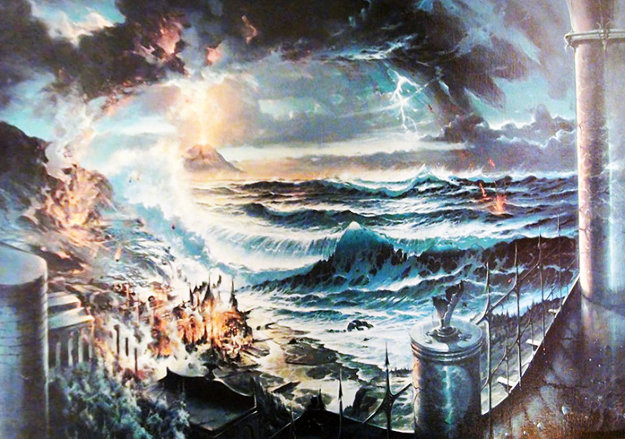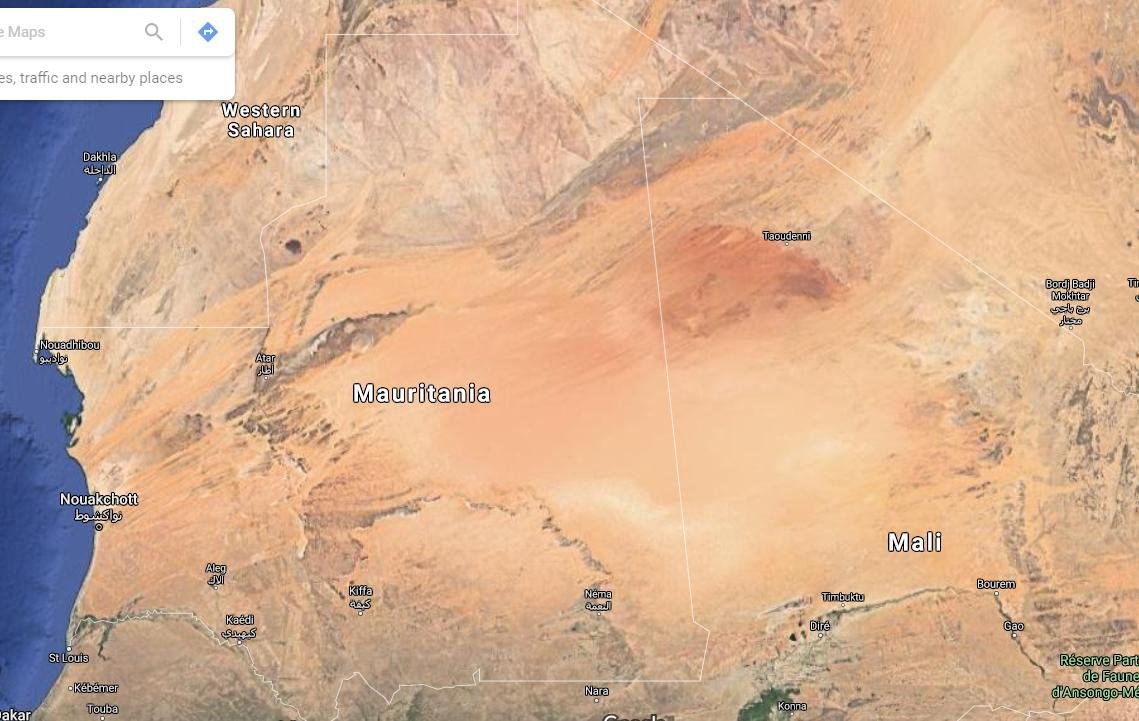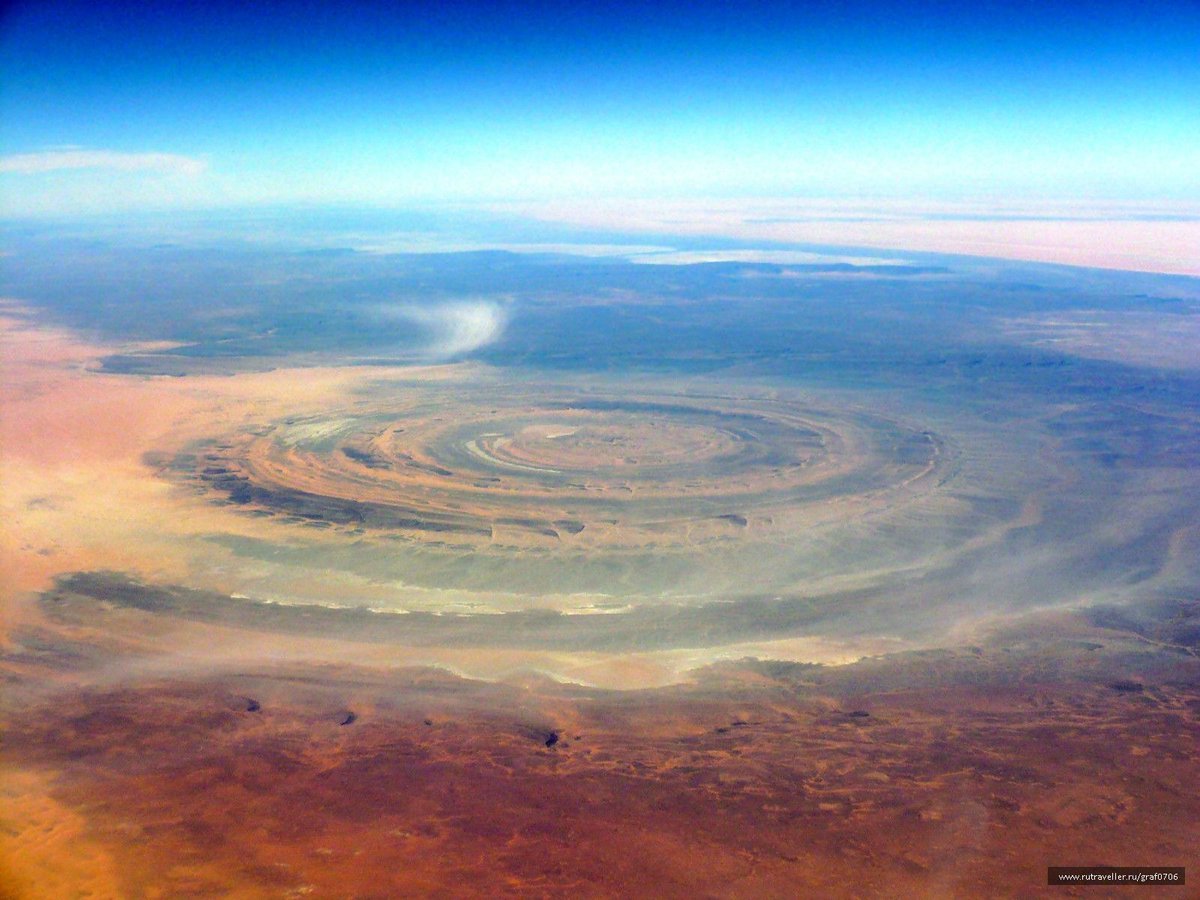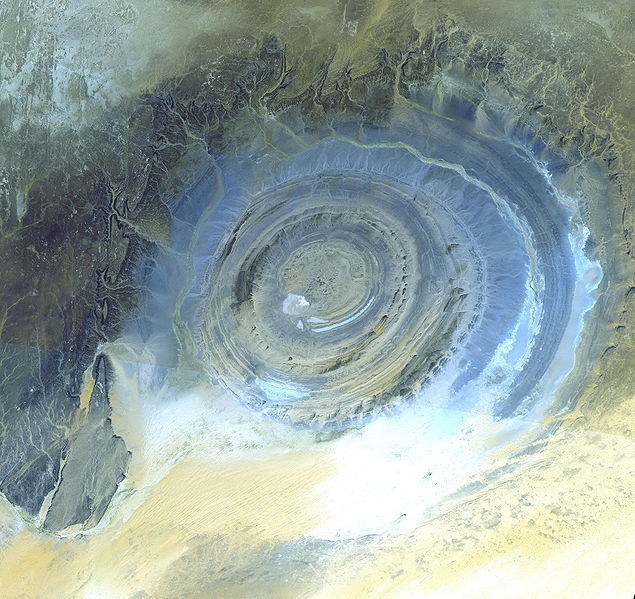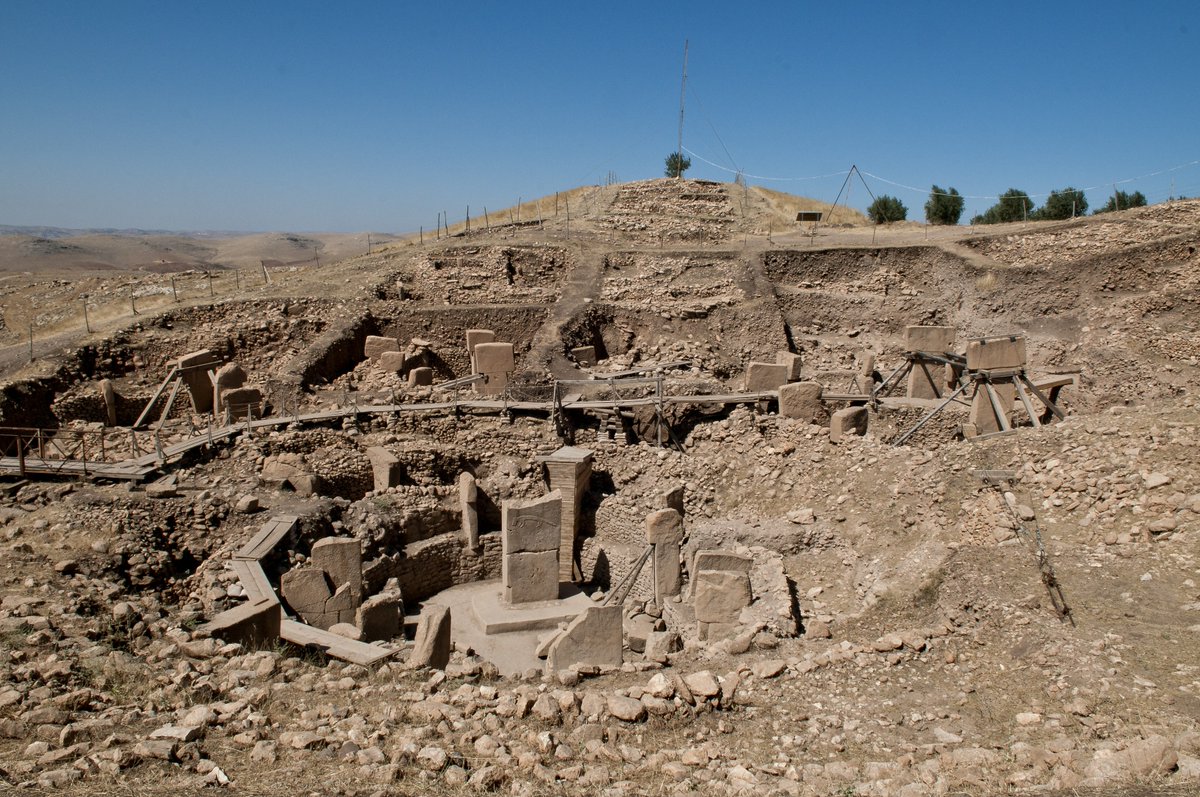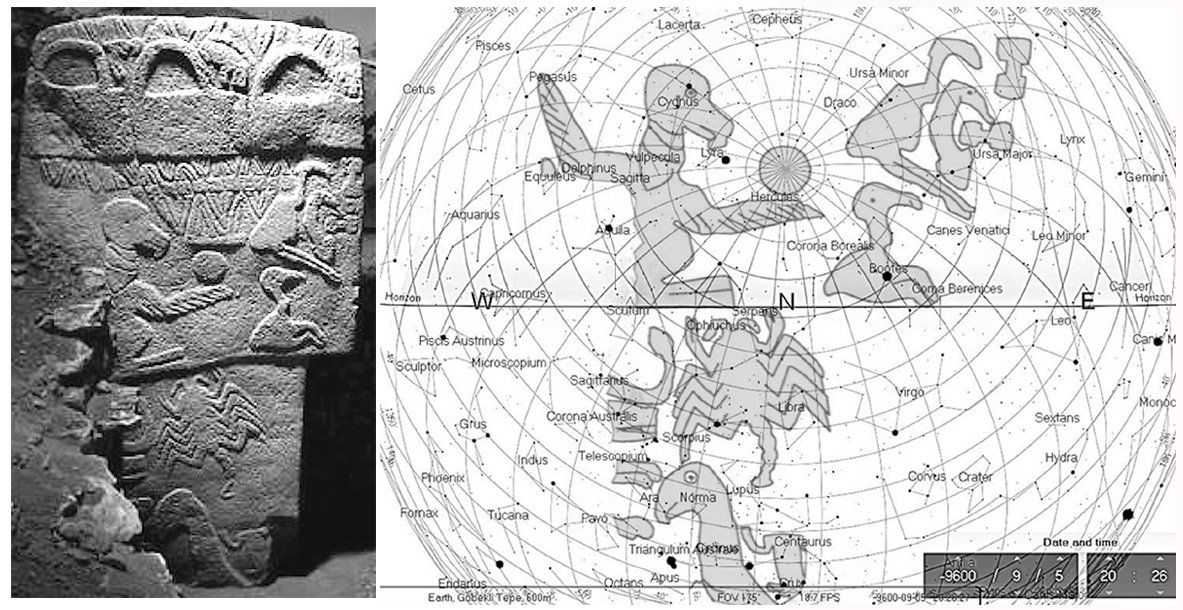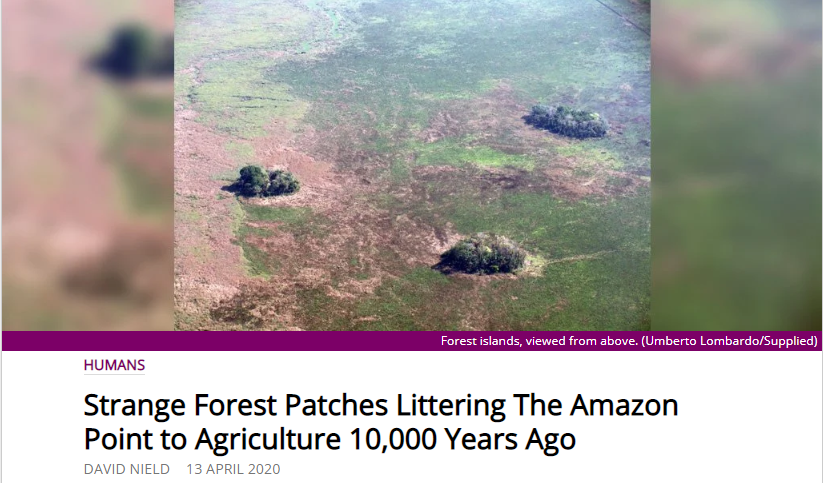I mentioned this because I think it's in stark contrast with the trope that all cultures have a "flood myth." In this case, I think there's enough evidence to show that yes, all those ancient flood myths are all talking about the same event. https://twitter.com/uncle_deluge/status/1250823846569086982
I think that Gilgamesh, Atra-Hasis, Noah's Ark, and Atlantis all point to the same event that happened roughly 12,000 years ago--the beginning of the Younger Dryas.
High-platinum deposits have been found all over the world, dating back to ~12,800 years ago. Greenland, South Africa, Chile, South Carolina--all of these places contain evidence of some tremendous event occurring at the beginning of the Younger Dryas period.
I personally believe a comet (or a series of comets) entered the Earth's atmosphere around this time, resulting in a catastrophic air burst that sent debris all over the planet.
Soot deposits were found in the cores of these platinum samples, as well as in the fossilized dung of large animals across North America. The implication being that most of the North American continent was, for a time, on fire.
This is also around the time that megafauna such as Mammoths began to go extinct around the world, with North America's largest animals all dying out.
If one of these comets, or a bulk of the debris from the air burst happened to make an impact in the ocean, the results would have been cataclysmic. Worldwide flooding would have affected humans even on the other side of the world, as coastal settlements were wiped out overnight
And I think it's a reasonable assumption to say that all the world's flood myths actually DO refer to this single event--ancient peoples struggling to come up with explanations for the great deluge. They blamed their gods, they blamed hubris--sometimes they blamed both
My personal speculation is that this flood wiped out the earliest human civilizations, the evidence washed away by the waves. Doesn't the desert near the Richat Structure look like it was "swept" smooth?
"Numerous, concordant radiocarbon dates, indicate that the bulk of these sediments accumulated between 15,000 and 8,000 BP during the African humid period. These deposits lie directly upon deeply eroded and weathered bedrock."
15,000 to 8000 years ago. Weirdly nonspecific, eh?
15,000 to 8000 years ago. Weirdly nonspecific, eh?
Scientists keep finding things that seriously mess with the narrative that agriculture, society, etc all started ~5000 years ago. They keep pretending these were one-off occurrences in another entirely nomadic human existence.
The "Vulture Stone" at Göbleki Tepe, which is one of those things humans made and then apparently didn't do anything else for another few thousand years, may very well depict the night sky on the day of the flood
Anyway, the point is, human civilization is a lot older than the common narrative would have us believe. I don't think hiding this is done out of malice, rather that people have a hard time admitting they were wrong.
Comparative mythology has a lot to teach us. The entire field of linguistics was basically started because a British dude in India noticed that "mama" was the same in English and Bengali
Reconstructing history from the similarities in old myths seems like it would have equal potential.
There's no better spot for an historical "Garden of Eden" than the parts of the Persian Gulf that were above-water before the flood.
https://twitter.com/SIrredenta/status/1250936176887975938
https://twitter.com/SIrredenta/status/1250936176887975938

 Read on Twitter
Read on Twitter
